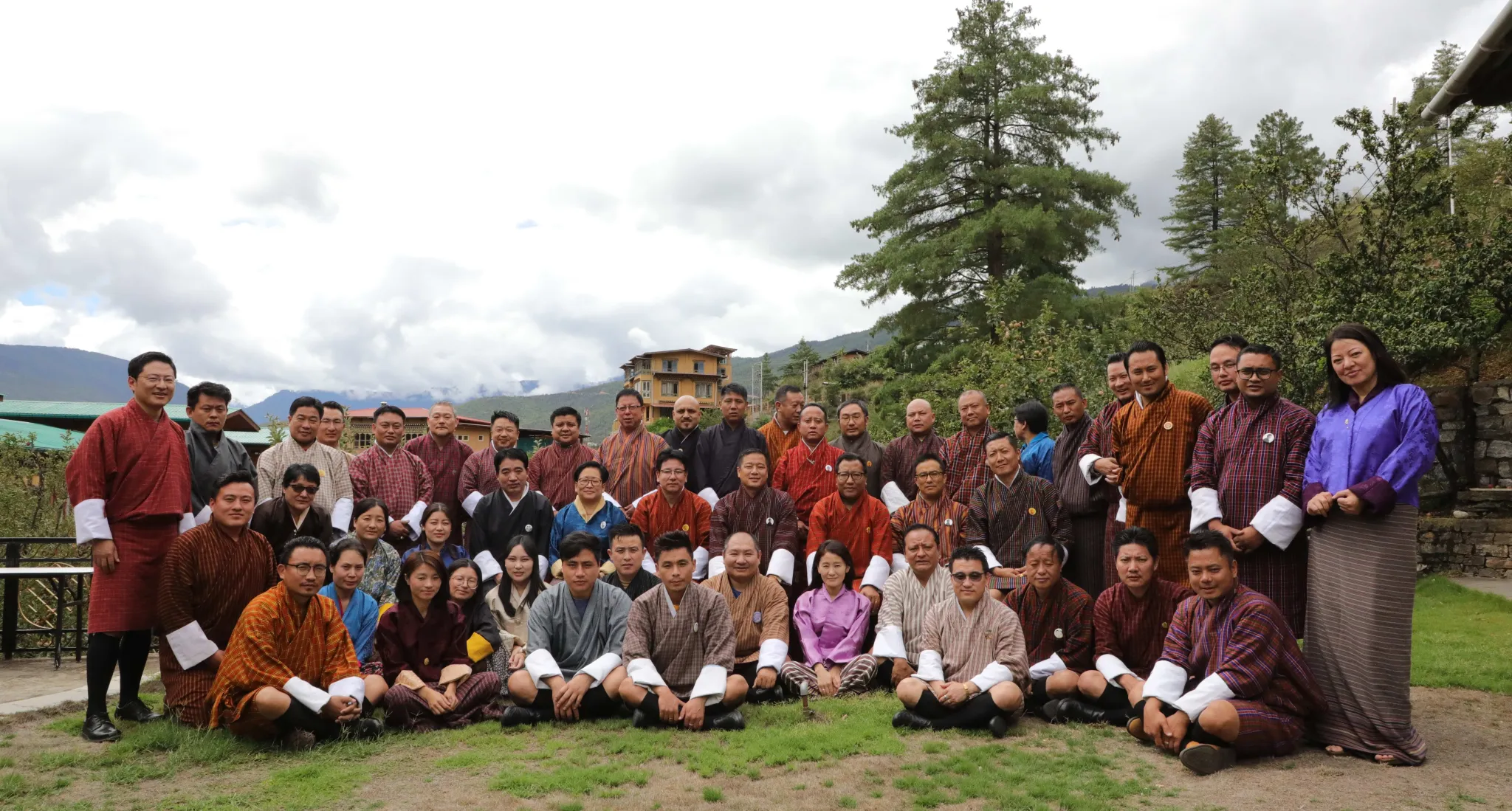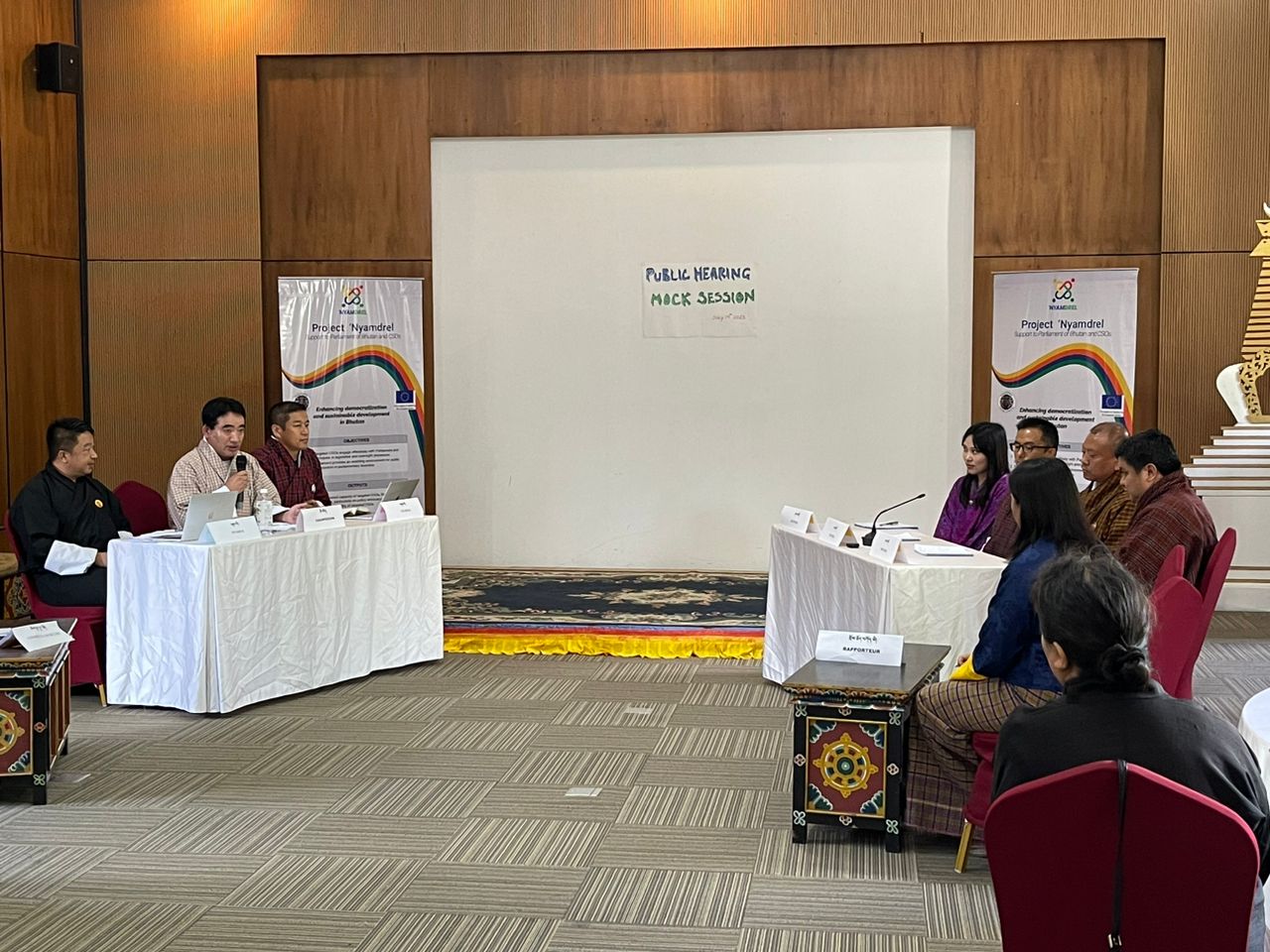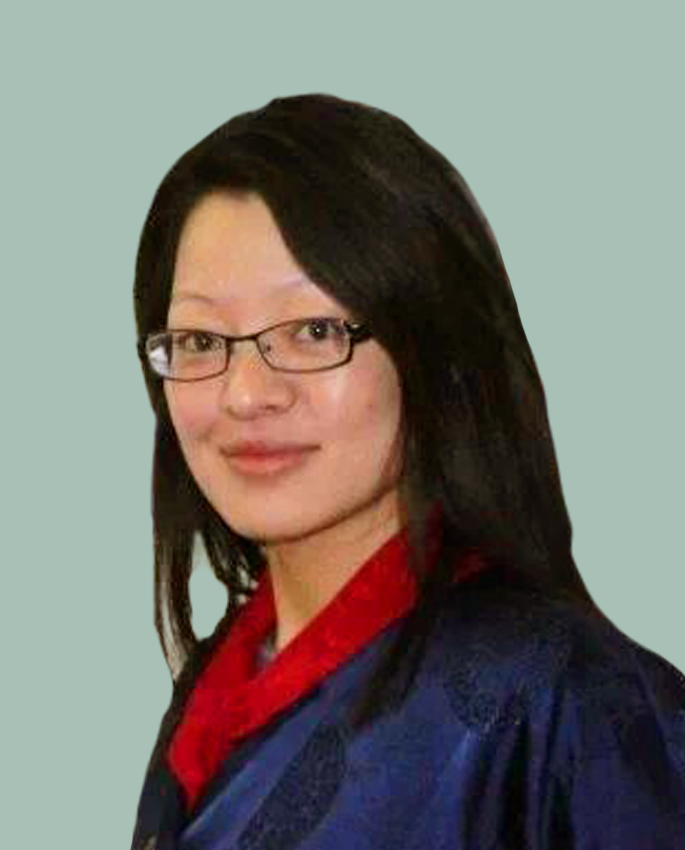Parliament of Bhutan welcomes public hearings as means to improve lawmaking

The workshop was organized at Tashi Namgay Resort, Paro, Bhutan by the Bhutan Project office of International IDEA. The Honorable Members joined the workshop from 17 to 19 July. An overwhelming 92 per cent of Members attended the three-day workshop.
About 24 staff attended the two-day training course on 15 July. As committee secretaries perform a multitude of tasks before, during and after public hearings, their expertise is critical in overseeing procedural and administrative efficiency. The participants said that the workshop was very useful as it upgraded their knowledge, skills and the general understanding of public hearing processes and outcomes. Prior to the training, some felt that the purpose of a public hearing was to 'grill' experts or informants, but they were pleased to learn that it was a sharing and information gathering mechanism on policies and issues that affect people’s lives.
During the opening session, H.E Mr Sangay Dorji, the Honorable Chairperson the National Council of Bhutan emphasized that, “As non-partisan elected representatives, we embrace the opportunity to conduct oversight and scrutiny functions through public hearings. Public hearings allow us to engage with various stakeholders, including civil society, business groups, citizen representatives, and subject experts, fostering non-partisan cooperation and enhancing transparency within the parliament. We believe this workshop will allow us to receive the full benefits of the collaborative approach afforded by the public hearing processes”.
Leena Rikkila Tamang, Regional Director for Asia and the Pacific Region, International IDEA, told participants that "Based on our global experiences, we have observed that trust in government and politics can falter if legislative processes lack transparency. To counter this, public hearing mechanisms may enhance public engagement and inclusivity, thereby improving the quality of the law-making process and fostering trust in government and governance."
The workshop was facilitated by Mr Nima and Mr Sangay Khandu, both of whom are former members of the National Council. The engaging and interactive format of the workshop gave an opportunity to test the theories and put them into practice through mock public hearings. This roleplay was found to be highly effective as participants said that it has helped them to boost their confidence and readied them to conduct proper public hearings. Participants informed that the role plays were like a trail run, as they get to choose the public hearing topics of interest for the group/committees and for the general population, prepared agenda and populate catalogue of questions, identifying and careful selection of the right witness, applied skills to question the witnesses and being aware that the outcome needs to be publicized.
Some of the discussions that ensued from the workshops indicated that public hearings could help to gain public trust, improve transparency, increase legitimacy of the legislation and government policies, and promotes popular participation through sharing of information and getting feedbacks from citizens and experts. This ultimately achieves the parliament’s constitutional obligations of being the people’s voice and working towards creating a vibrant democracy.
The participants learnt that effective public hearings involve elected representatives consulting citizens before taking decisions on matters involving their lives, implementing, and evaluating their outcomes. This practice reduces a feeling of alienation and powerlessness by creating an open and visible decision-making process to which every Bhutanese has equal access. The workshop trained the participants for guiding the witnesses whose preparation will be useful for the successful conduct of the public hearings. They were also prepared for receiving written submissions lodged prior to the hearing, carefully selecting witnesses, and preparing written reports on the outcomes to increase transparency of the decisions.
The project manager of Project ‘Nyamdrel, Mr Pema Tenzin, in his concluding remarks, thanked honorable Chairperson, Members the Secretary General and Committee Secretaries for their active participation. He mentioned that with skills, knowledge and confidence acquired from the workshop, the National Council of Bhutan may like to consider conducting at least one public hearing in 2023.
The training was fully funded by the EU under “Project ‘Nyamdrel | Support to Parliament of Bhutan and CSOs”, which is a project jointly implemented by International IDEA and Helvetas Bhutan.





